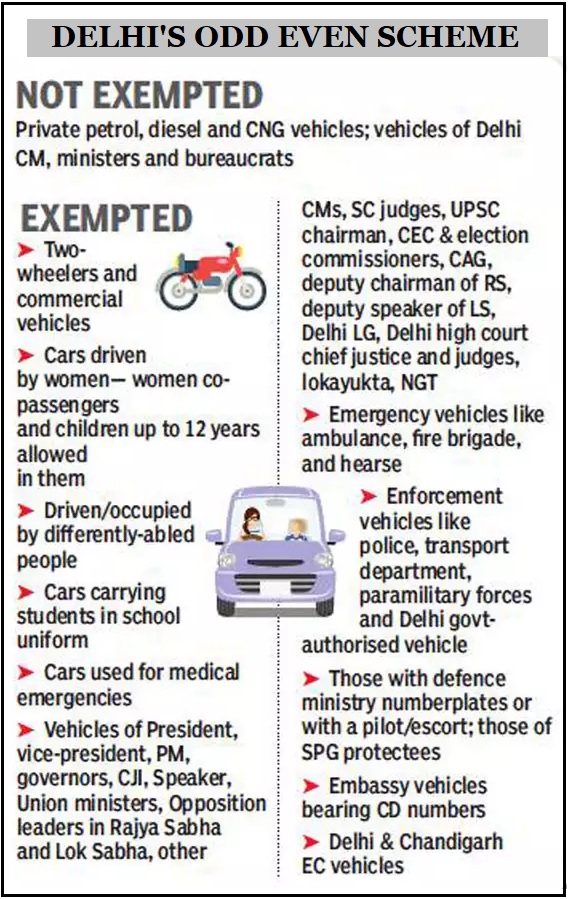900 319 0030
enquiry@shankarias.in
The Delhi government has announced the return of the odd-even road assigning scheme for a week beginning after Diwali, as the air pollution in Delhi is already in severe and severe plus category.

|
Countries that used Odd-Even scheme to curb Pollution |
|
It will be the 4th time the vehicle-rationing scheme will be implemented in Delhi in the last 7 years.
To know about poor air quality in Mumbai, click here
|
Benefits |
Concerns |
|
|
References